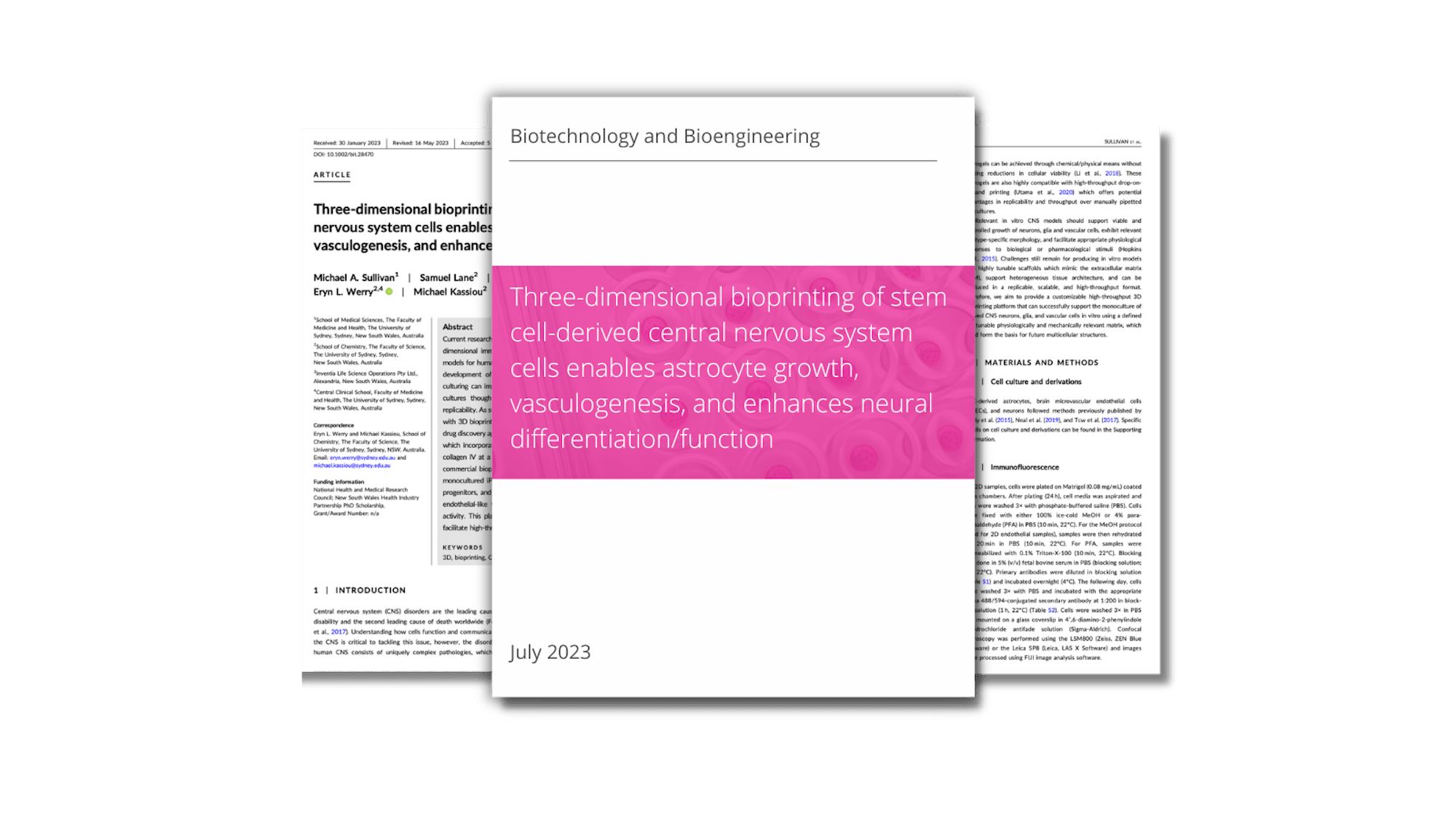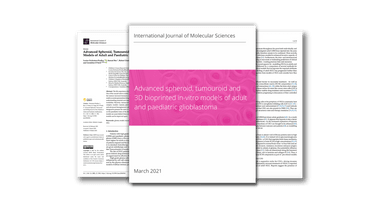Abstract
Current research tools for preclinical drug development such as rodent models and two‐dimensional immortalized monocultures have failed to serve as effective translational models for human central nervous system (CNS) disorders. Recent advancements in the development of induced pluripotent stem cells (iPSCs) and three‐dimensional (3D) culturing can improve the in vivo‐relevance of preclinical models, while generating 3D cultures though novel bioprinting technologies can offer increased scalability and replicability. As such, there is a need to develop platforms that combine iPSC‐derived cells with 3D bioprinting to produce scalable, tunable, and biomimetic cultures for preclinical drug discovery applications. We report a biocompatible poly(ethylene glycol)‐based matrix which incorporates Arg‐Gly‐Asp and Tyr‐Ile‐Gly‐Ser‐Arg peptide motifs and full‐length collagen IV at a stiffness similar to the human brain (1.5 kPa). Using a high‐throughput commercial bioprinter we report the viable culture and morphological development of monocultured iPSC‐derived astrocytes, brain microvascular endothelial‐like cells, neural progenitors, and neurons in our novel matrix. We also show that this system supports endothelial‐like vasculogenesis and enhances neural differentiation and spontaneous activity. This platform forms a foundation for more complex, multicellular models to facilitate high‐throughput translational drug discovery for CNS disorders.

.png)

